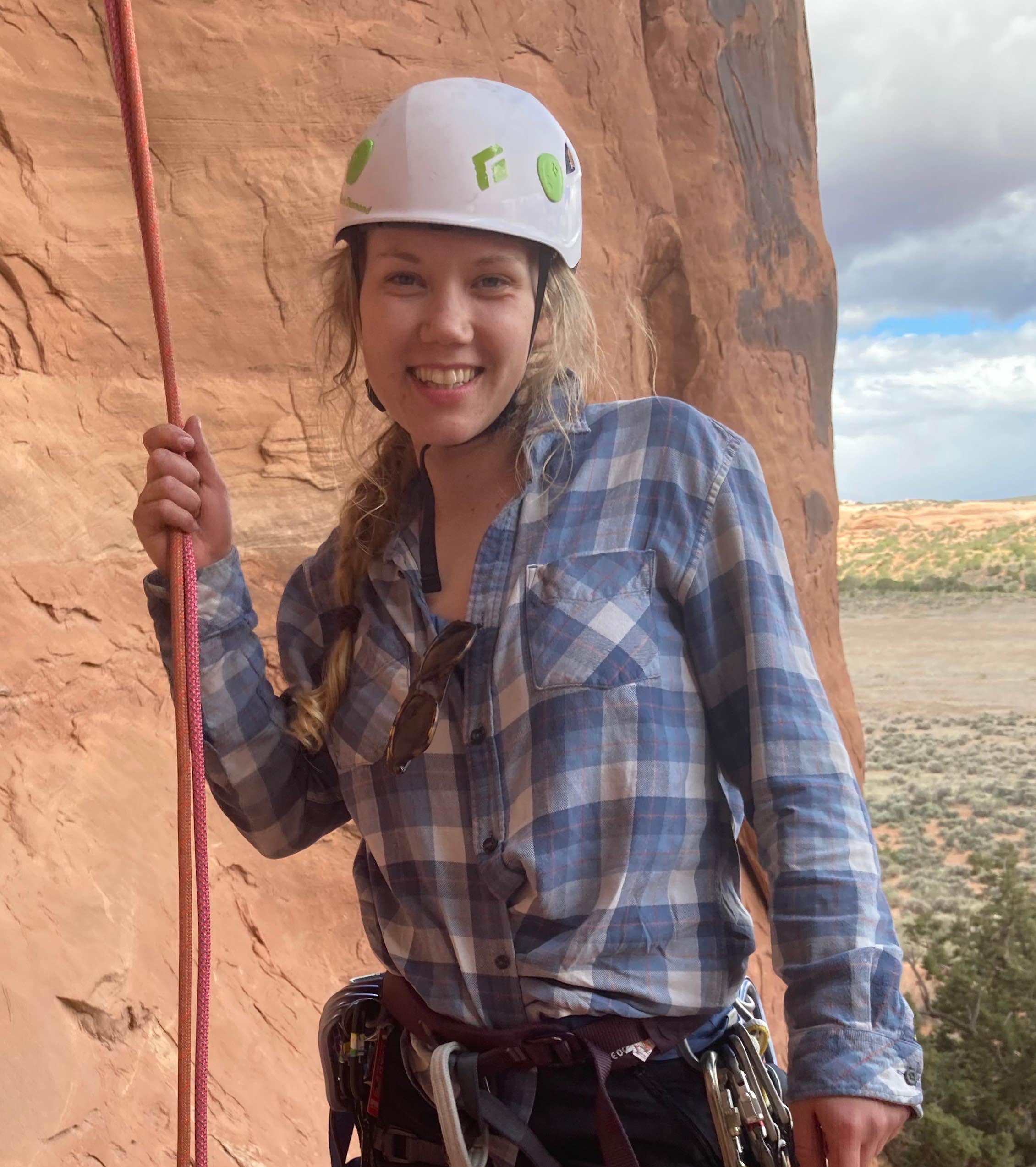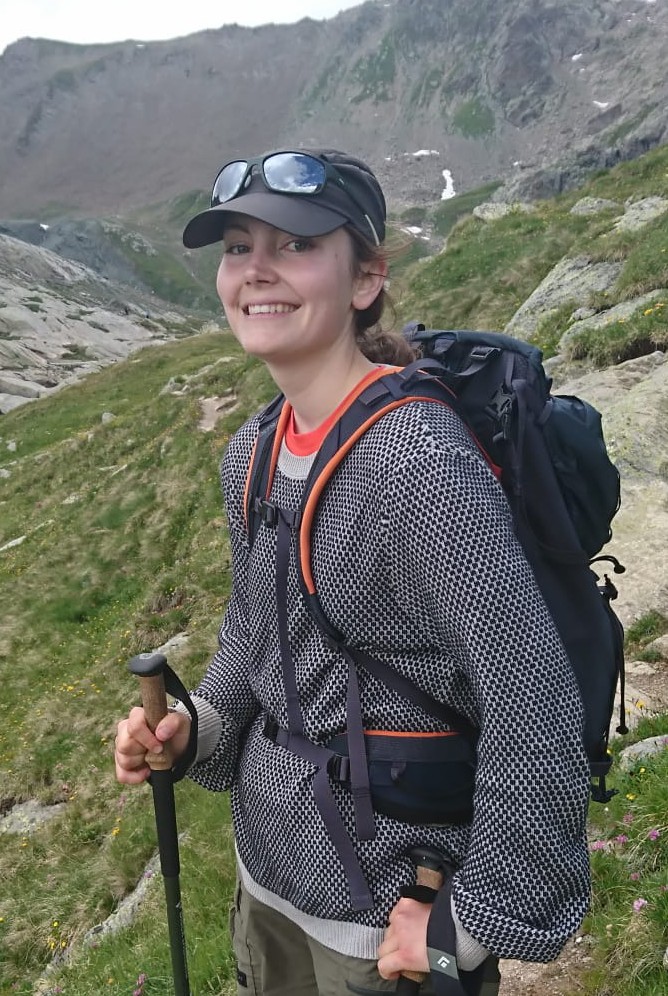One student from Alaska and one from Switzerland have been selected as this year’s recipients of a Geophysical Institute Schaible Fellowship.
This is the second year of the fellowship program that carries the name of Grace Berg Schaible, one of the University of Alaska system’s strongest private financial supporters. She was also a former Alaska attorney general and University of Alaska Fairbanks graduate.
Amy Jenson of Alaska and Annegret Pohle of Switzerland are this year’s recipients of two-year fellowships. The fellowships begin with the 2022-2023 academic year.
“We are so pleased to welcome Amy and Annegret to the Geophysical Institute and know they will do great work with the guidance of their advisers,” said Geophysical Institute Associate Director Jessica Larsen, who manages the fellowship program.
“These annual fellowships are yet another example of the deep and enduring support that Grace Schaible gave to the University of Alaska and its many entities in life and now through her estate,” Larsen said. “Because of her gift, the Geophysical Institute is able to further its nurturing of the next generation of scientists.”
Schaible's estate gave $2.7 million to establish the endowment that funds the annual fellowships.
•••
Amy Jenson has completed most of her education in Alaska, going from high school in Wrangell to the University of Alaska Southeast, where she obtained a bachelor’s degree in mathematics. From there she attended Montana State University, where she received her master’s in mathematics.
Traversing, ice climbing and camping on and around Mendenhall Glacier, which can be seen from the UAS campus, led to her field of study: glaciers and the interactions of water and ice within glacier systems.
“The way ice caves at the terminus and moulins in the ablation zone evolved over the course of a season stirred my curiosity about the processes happening within the glacier,” she said. “I began doing research in glaciology with Dr. Jason Amundson during my final year at UAS.”
At the Geophysical Institute, Jenson’s Ph.D. research will focus on the competing effects of subglacial hydrology and glacier geometry on ice velocities, specifically at Sermeq Kujalleq in Greenland.
“Sermeq Kujalleq, also known as Jakobshavn, is a fast-flowing outlet glacier in southwest Greenland that discharges a significant amount of ice into the ocean from the Greenland Ice Sheet and contributes to sea level rise,” she said.
Jenson said she chose UAF because of the diverse skill set at the Geophysical Institute and the Ph.D. program’s emphasis on physics and geophysical methods.
“I am also excited to come back to Alaska and experience a different region of the state,” she said.
Jenson will be working with Geophysical Institute professor Martin Truffer.
•••
Annegret Pohle studied Earth sciences and received her bachelor’s and master’s degrees in geophysics from ETH Zurich. She spent two exchange semesters in Svalbard, Norway.
“I have never been to any of the Americas, so I will have a lot to discover, and I'm very much looking forward to it,” she said.
Her Ph.D. will focus on modeling the mass changes of the Greenland or Antarctic ice sheets or both.
“It is still a challenge to predict how those will evolve and thus how they will contribute to sea level rise,” she said. “We don’t know the current state of the ice sheets so well, and to get there we want to model the past evolution of the ice sheets using data assimilation methods. I hope my research will contribute to this goal.”
Pohle became interested in glaciology while in Svalbard, which has a landscape much different than the part of Switzerland where she grew up. Glaciers were a part of everyday life in Svalbard, she said.
“The courses I took in Svalbard all revolved around glaciers, so I became quite interested. And back in Zurich I took all the glaciology courses that were offered,” she said.
Pohle said UAF is the ideal place to continue her work, especially because she likes high latitudes.
“A few people in my research group have been in Fairbanks and at UAF, and they have told me only good things,” she said. “I'm sure I will be in an environment where I can learn a lot from the people around me.”
Pohle will be working with Geophysical Institute research associate professor Andy Aschwanden.








